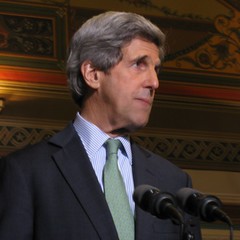Corruption Watchdog Worried By Haitian Reconstruction Plan
As world governments prepare for the March 31st United Nations donor conference on Haitian reconstruction efforts, Transparency International is voicing concern about several aspects of the tentative recovery plan.
Late last week, the Haitian government released the “Action Plan for National Recovery and Development”, the end result of its consultations with local and international experts, and the document that will be the basis for its appeal to donor countries.
In an interview with Talk Radio News from Haiti, Transparency International’s Senior Consultant Roslyn Hees said the organization is concerned about several parts of the plan.
“There is no mention of any structure or process to monitor this aid whatsoever. There is a mention that there would be a financial audit, but we were hoping for something that was much more of an implementation monitoring and there is no mention of that in the document at this time.”
Hees is to meet with Edmond Mullet,the UN’s top official in Haiti, on Thursday to discuss Transparency International’s own proposal for a multi-stakeholders aid monitoring group consisting of the Haitian government and civil society as well as the UN and major donor countries.
Last week, Haitian President René Preval attempted to downplay and dismiss the most recent State Department report alleging corruption is present at every level of Haitian government.
“I am surprised he (President Preval) does not understand that this is very difficult situation and Haiti is not exempt from corruption. We are not blaming anyone, it exists everywhere. But the most important thing is to recognize that corruption exists and to pro-actively work to reduce corruption risk.”
The action plan also creates an Interim Commission for Haitian Reconstruction—a 20-member board with the final say in the review and approval of all projects—but Hees has issues with the proposed make-up of the board.
“It is a bit strange that a majority of the commission would be made up of international agencies and a minority would be made up of Haitian representatives. Even within the Haitian representation, there is no one from civil society, except a representative of Haitian unions, who cover a minuscule proportion of the Haitian workforce since most of the workforce is informal and not unionized. ” said Hees.
During his visit to Port-au-Prince earlier this week, President Clinton emphasized the importance of coordination between NGO’s and the Haitian government.
However Hees says the Haitian government hastily asked about 100 members of different civil society organizations to look at the plan during a March 19th meeting, where they received the 35-page document as they walked in the door.
“NGO’s felt they did not have time to do a proper analysis of the document and make comments. This was very much a pro forma consultation and many of them have put out press releases complaining about the process.”
 Haiti,
Haiti,  corruption in
corruption in  United Nations
United Nations 






Afghanistan Needs Continued American Commitment, Says Official
Philip Bunnell - Talk Radio News Service
Special Representative to Afghanistan and Pakistan Richard Holbrooke told the House Appropriations Committee Wednesday that if the United States is going have a successful run in Afghanistan, its commitment and investment must continue unwavered.
Holbrooke said strengthening the Afghan government and weeding out corruption is critical if President Obama’s war strategy is to succeed.
“The steps we’ve taken so far to fight corruption is a start,” said Holbrooke, citing the multiple recent arrests of corrupt Afghan officials. Despite the progress, Holbrooke acknowledges that there was still a lot of work to do in erasing corruption within the Afghan government.
One of the keys to a stronger Afghan government, Holbrooke said, is an effective transfer of control from US and NATO forces to locals. He said that, without a commitment to a smooth transfer, “the process will not move forward.”
Holbrooke stressed that persistent investment in the Afghan military and police forces and the economic development of the country is vital. Accomplishing these goals will require “continued American commitment,” and patience even after American troops have left the country.
Holbrooke’s testimony comes in wake of wavering Democratic support for the war in Afghanistan, including a vote for an additional $37 billion in war spending that 106 House Democrats voted against.
Rep. Jim Moran (D-VA), one of the opposing Democrats, questioned the validity of the United States’ mission in Afghanistan. Moran recounted his recent visit to Afghanistan where he was told that from the perspective of some Afghan tribal leaders, the United States “didn’t liberate Marja, the Taliban liberated it from a corrupt police chief who was preying on his own people.”